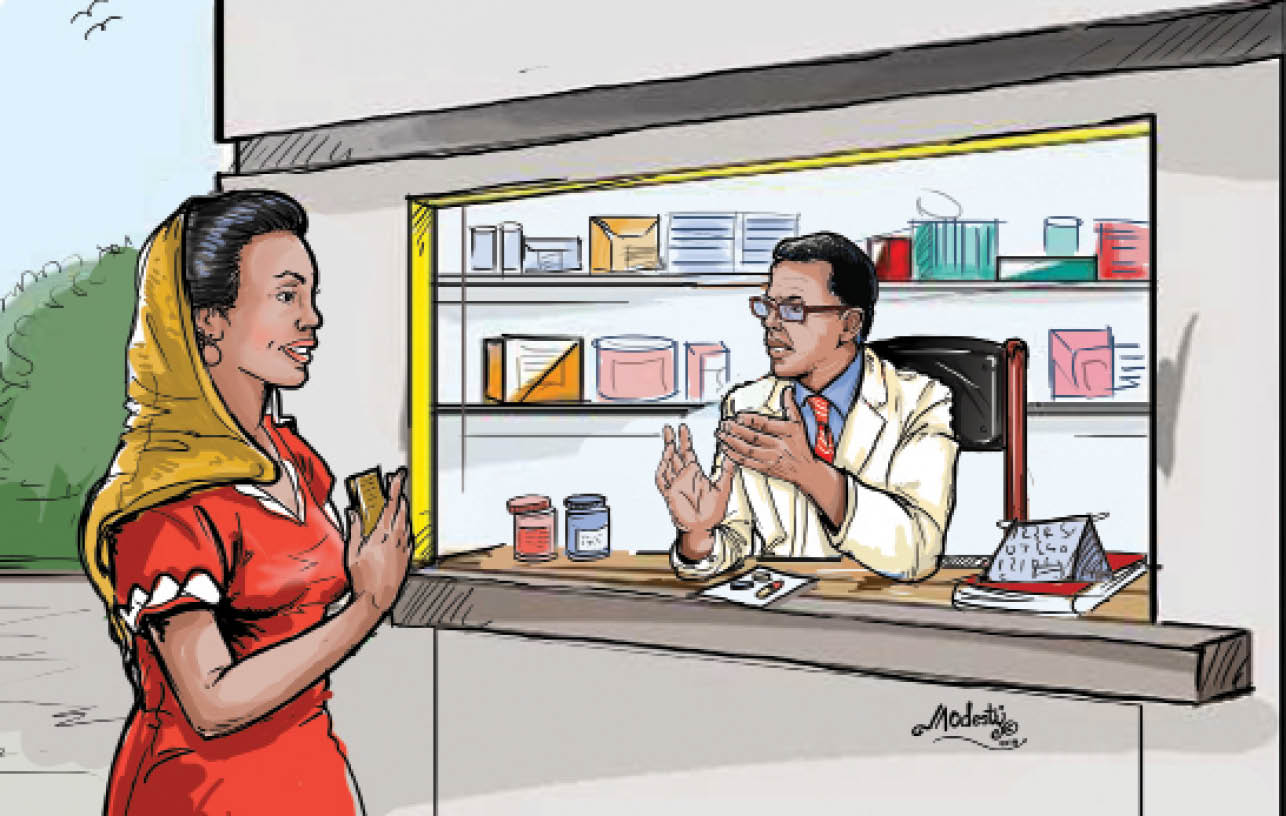The new year is here. January has arrived with all its beauty, hope and vigour. Every year, the new year is ushered in with the dry harmattan winds and dust that make mockery of our skins, bones and joints. We huddle up in our sweaters and blankets, drinking warm beverages while enjoying the long nights and shorter days. I like to think of our harmattan as a fusion of winter and summer; too warm for winter, yet a tad colder than the traditional summer weather of the west. Instead of the gloomy depression that is associated with winter, the mood of Nigerians is generally milder and more laid back during the harmattan. The heat which fuels the quick outbursts of anger in us is absent and in its place, a more easy-going, compassionate and unperturbed Nigerian is born.
Unfortunately, the month of January also comes with its major challenges, chief of which is the dreaded Lassa fever.
Lassa fever is endemic in Nigeria and the annual peak of Lassa fever cases is typically observed during the dry season (December–April). Thus, the number of infections is expected to rise further until the end of the dry season.
According to the NCDC, the death toll from the Lassa fever outbreak in Nigeria in 2022 was 189.The report also showed that the confirmed cases for last year rose to 1,067 across 112 local government areas and 27 states. Presently, the 52nd-week report from December 26 to January 1, 2023, showed that the suspected cases were 8,202. It also revealed that 63 healthcare workers were infected by the disease.
- Man protests fuel price hike in gov’s office
- How I lost my virginity to trafficking – NAPTIP Ambassador
Earlier, this week, a medical doctor working with the World Health Organization, WHO, office in Makurdi, Dr Samuel Nyityo and two others reportedly died of Lassa Fever in the state. His death reminds health workers of how vulnerable we are in the face of this endemic disease. We are reminded once again of the need to put ourselves first and to observe basic universal precautions when handling patients at all times. So many lives have been needlessly lost to this disease that can be easily treated once detected early. The loss of a life does not just stop at the absence of the human being but rather at the effect of the loss on his family, workplace and community. Spouses become widows/widowers; a breadwinner is lost, children become orphans, parents suffer the immeasurable loss of a child and depending on the skill of the person, a vacuum is created at his place of work.
Lassa fever remains a major public health challenge in West Africa with Nigeria bearing the highest burden. This year marks 54 years since the identification of the virus causing Lassa fever in the village of Lassa, in Nigeria. Despite affecting up to 300,000 people a year across West Africa, and causing more than 5,000 deaths annually, Lassa fever is a poorly understood disease that is challenging to diagnose and treat. One of the major challenges of treating Lassa fever is the nature of the disease itself because at the onset, it has vague symptoms that mimics diseases like malaria. A high index of suspicion, especially during this season is therefore paramount. Additionally, only a few laboratories in the world can diagnose the virus which often leads to delays in starting treatment. What happens most of the time is that the patient wastes time before presenting to the health facility, preferring instead to treat the fever by self-medication or going to a pharmacy. Sometimes, even after presenting to the hospital, a lot of time is spent treating other causes of fever causing a delay. Unfortunately, by the time the patient actually presents for treatment or the diagnosis is confirmed, the prognosis is very bad especially if treatment is not commenced within six days from the onset of symptoms.
Another major hazard associated with this harmattan season is carbon mono-oxide poisoning. During this cold season, people in rural areas take burning charcoal into their rooms at night in order to keep themselves warm. The danger is the smoke emitted from the charcoal into the room. As the charcoal burns, the concentration of carbon monoxide (CO), produced by the incomplete combustion of carbon, gradually increases. CO concentrations of as little as one part per thousand can be fatal if inhaled over a period of two hours. This is made worse during the cold season when all the windows and doors are closed thereby increasing the amount of smoke inhaled.
On the 2nd of January, a couple were found dead in their room in Dawakin Tofa LG in Kano. The couple were believed to have died of suffocation from charcoal fumes. When the couple who lived in the family compound did not come out of their room for a whole day, the grandmother raised an alarm and called for help to break the door down. The smell of smoke and their lifeless bodies painted a gory picture.
Every year, especially during this season, we hear of these stories; friends dying in a room in Jos; a whole family discovered dead in a small rented room in Kano; children found unconscious in their rooms, and so on and so forth. Harmattan is associated with a very high risk of fire outbreak due to low humidity, dryness and fluctuation in temperature.
But what are we doing about it?
Government does its best by leaning heavily on advocacy. Radio and TV programmes are sponsored to enlighten people on the dangers of taking burning charcoal into their rooms. The Federal Fire Service instructs us against leaving cooking unattended; indiscriminate bush burning; storing inflammable items indoors and keeping gas cylinders indoors. And while these measures are commendable, it exposes yet another deficiency of the government- lack of electricity. If electricity were readily available, people would not resort to firewood cooking and other more dangerous means of cooking. But that is a story for another day.
So, while a lot of us are enjoying the hazy, cold morning winds and basking in the euphoria that it’s the new year, we should also be alert to the dangers of Lassa fever, smoke poisoning and fire outbreaks this season. Educate your loved ones. So that we do not enter ‘one chance’.

 Join Daily Trust WhatsApp Community For Quick Access To News and Happenings Around You.
Join Daily Trust WhatsApp Community For Quick Access To News and Happenings Around You.



